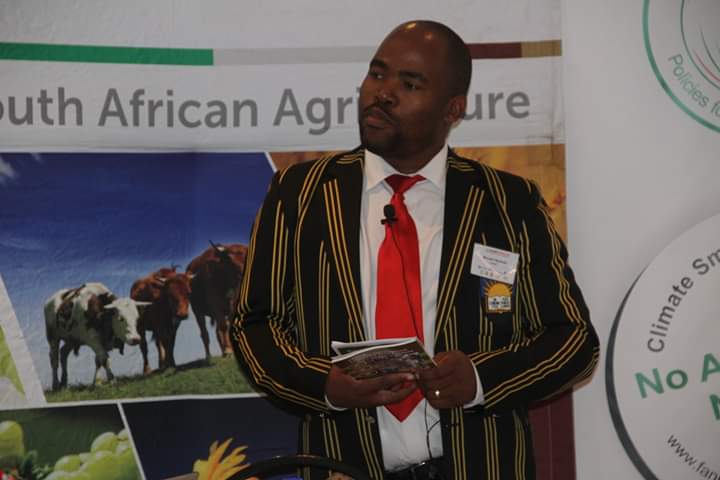By Mantoe Phakathi
The COVID-19 pandemic has forced organisations in South Africa and Zambia implementing the AFRICAP programme to change their strategies. Following the outbreak of the virus which has since been declared a pandemic by the World Health Organization (WHO), citizens were compelled to stay at home or avoid gathering in large groups in what is widely known as lockdown.

Implemented in Malawi, South Africa, Tanzania and Zambia, AFRICAP has established academic partnerships between UK and African research and policy institutions. It aims to develop capacity across these partnerships in the field of climate smart agriculture and food systems through the participation of farmers, government officials and civil society organizations.
One of the partner organisations in the GCRF-AFRICAP programme is the Agricultural Consultative Forum (ACF) in Zambia, which has been forced to reduce research field visits and has switched to collecting data online.
“Field work has more or less come to a standstill due to travel restrictions to some areas,” said Masiye Nawiko, the Executive Director of ACF. The NGO provides a stakeholder platform for agricultural policy dialogues in Zambia.
“Online tools of collecting data are also used such as Survey Monkey and questionnaires. Overall, due to the above challenges, the institutional capacity to spend programme funds has slowed down,” Nawiko said. “Considering that the programme is underpinned by research as a basis for influencing policy to boost food security, field work is critical.”
However, to ensure compliance with the WHO COVID-19 safety recommendations, Nawiko said researchers in Zambia were undertaking field visits in phases, involving small groups. He said timelines have been affected because some partners in the programme suspended operations or they were working on a rotational basis for a certain number of days in a week.
According to Ndashe Kapulu, a Zambian doctoral researcher from the University of Leeds, the pandemic has brought many uncertainties and opportunities in his work. Kapulu is researching on the implications of emerging soybean markets in Zambia on livelihoods and food and nutrition security of rural smallholder farmers. His research is supported by the GCRF- AFRICAP programme.
“COVID-19 has impacted progress because we had planned to do an in-depth study through interviews and focus groups but that would depend on how the pandemic evolves in Zambia,” said Kapulu, speaking from a quarantine facility following his return from the United Kingdom, which further impacted his ability to work on the study. “The pandemic also brings a lot of opportunities in helping us understand how the soybean value chain will evolve, considering the global economic impact of COVID19,” Kapulu said. Farmers have harvested soybean and the Zambia government forecasts a six-percent increase in production for the 2019/2020 season.
COVID-19 has changed the way organisations disseminate research findings. For instance, in South Africa, the GCRF-AFRICAP team postponed household survey feedback workshops after the government imposed a lockdown. According to Bonani Nyhodo, a senior manager at the National Agricultural Marketing Council (NAMC), a household survey on how farmers respond to unexpected weather changes, was conducted and the team had to come up with creative means to disseminate findings. “The team is currently compiling feedback pamphlets, videos and articles, which will be shared with the farmers and the relevant stakeholders electronically,” said Nyhodo, who oversees the programme within the NAMC, which is the coordinating organisation.
In order effectively identify adaptation practices or introduce new farming practices to mitigate the adverse effects of climate change, researchers from the University of Leeds in the UK were supposed to conduct research in two districts in the Free State Province. That was put on hold due to COVID-19 travel restrictions. “It was then resolved that they work from home by doing some laboratory preparation related ecology work, which involves sorting and identifying specimen,” said Nyhodo.
Engagements with partners within South Africa and other GCRF-AFRICAP countries are now done online.
